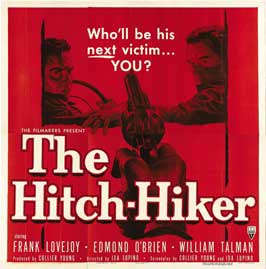High and Low (aka:
Tengoku to Jigoku) (1963) High and Low is film noir Akira Kurosawa
style, employing many of the familiar tropes of the genre to explore the darker
side of success and fortune. Toshirô Mifune stars as wealthy shoe company
executive Kingo Gondo. On the eve of Gondo assuming ownership of the company,
his chauffeur’s son is kidnapped for ransom, and he must choose between his
livelihood and the life of the boy. The story takes its time to unfold, with
the first half confined to virtually one set, Gondo’s house, before taking us
outside its confines. The film’s Japanese title, Tengoku to Jigoku, meaning “Heaven and Hell,” aptly describes the
contrast between Gondo’s comfortable, sheltered existence on top of a hill,
contrasted by the realities of the slum below. We’re afforded time to
contemplate his lofty position, as well as the motivations and inner torment of
extortionist and victim. Memorable scenes include a jazzy night club, a seedy
back alley populated by heroin addicts, and a sequence that masterfully employs
a spot of color on an otherwise black and white film. In director/co-writer
Kurosawa’s riveting contemplation of crime, no one emerges unscathed or
victorious.
Rating: ****½. Available on Blu-ray and DVD
Detour (1945) Al
Roberts (Tom Neal), a drifter in a diner, recalls the chain of unfortunate events
that led to his peripatetic lifestyle. When his lounge singer girlfriend
(Claudia Drake) moves to Los Angeles to pursue her fame and fortune, he sets
out on the road after her. His hitchhiking journey becomes disastrous, however,
when he winds up with a dead driver. Instead of reporting the incident to the
cops, he takes the driver’s car, along with his money and identity. Things turn
from bad to worse after Roberts picks up another drifter, Vera (Ann Savage),
who’s wise to his transgressions. Savage steals the show with her vitriolic performance.
Director Edgar G. Ulmer (The Black Cat)
and writer Martin Goldsmith pack a lot into such a short span (the film clocks
in at only 68 minutes). It’s decidedly brisk, but never hurried. Roberts is
compelling as the unreliable narrator – we’re supposed to believe he’s innocent,
but as his life unravels, you’re never quite sure. The tacked on ending, an
obvious concession to the Production Code, brings a swift resolution to the
ambiguous climax. This is essential viewing for any fan of the genre.
Rating: ****. Available on DVD
Le Samouraï (1967)
Director/co-writer Jean-Pierre Melville’s post-modern film noir doesn’t get
hung up on a labyrinthine plot – it’s more about capturing a specific look and
feel. Set amidst the rain-soaked streets of Paris, the focus is on laconic hitman
Jef Costello (Alain Delon), who lives by his own code and embodies honor and
style in equal measures. After he’s held by the police, he attempts to track
down the former employers who now want him dead. With Costello, it’s the little
details that count, as in one scene where he trades a hat and coat with another
suspect, and carefully adjusts the brim of his fedora. Nathalie Delon is also
memorable as his close-mouthed girlfriend, and Cathy Rosier shines as the
piano-playing femme fatale, who witnesses Costello leaving the scene of a crime.
Melville paints a picture that turns film noir on its head, where the police
seem far less honorable than the criminal, and style is the substance.
Rating: ****. Available on Blu-ray and DVD
The Hitch-Hiker
(1953) Director/co-writer Ida Lupino’s thriller sustains an almost unbearably
tense atmosphere from start to finish. Two men (Edmond O'Brien and Frank Lovejoy)
on a fishing trip in Mexico experience an abrupt change in plans when they pick
up a murderous hitch hiker (William Talman). Talman is chilling as escaped
criminal Emmett Myers, who orders the men to assist him with his getaway. The
hijacked pals carefully plot against the sociopath, knowing they’re just a
means to an end, to be discarded when he’s done. One especially affecting scene,
set in a Mexican general store, affirms the friends’ humanity, while
reinforcing the antagonist’s barely restrained capacity for evil. Warning: because
this movie has fallen into the public domain, be sure to find a good quality
copy (The murky version I watched was more noir than film).
Rating: ***½. Available on Blu-ray and DVD
The Killing (1956) This stylish early film by Stanley
Kubrick wasn’t a favorite of the director’s, but there’s a lot to like about
it. Sterling Hayden (who would appear as Brigadier General Jack D. Ripper in Dr. Strangelove) stars as Johnny Clay,
the mastermind of a $2 million race track heist. It’s not too difficult to
imagine his menacing clown mask influencing the bank robbery scene in 2008’s The Dark Knight. Although the film is hampered
by extraneous narration (a choice Kubrick opposed), it features some outstanding
performances. Elisha Cook, Jr. is terrific as the big-talking, obsequious George
Peatty, and Marie Windsor is engaging as his two-timing wife, Sherry. Perhaps a
voiceover-less version will surface one day, allowing the audience to connect
the dots of the elaborate caper on our own.
Rating: ***½. Available on Blu-ray and DVD






Some really good recommendations you have there. Yes Removing the narration will be a good thing for The Killing. Hope his estate gets that released
ReplyDeleteThanks for visiting, Vern! November was a great month for movies. I need to do this again next year.
Delete